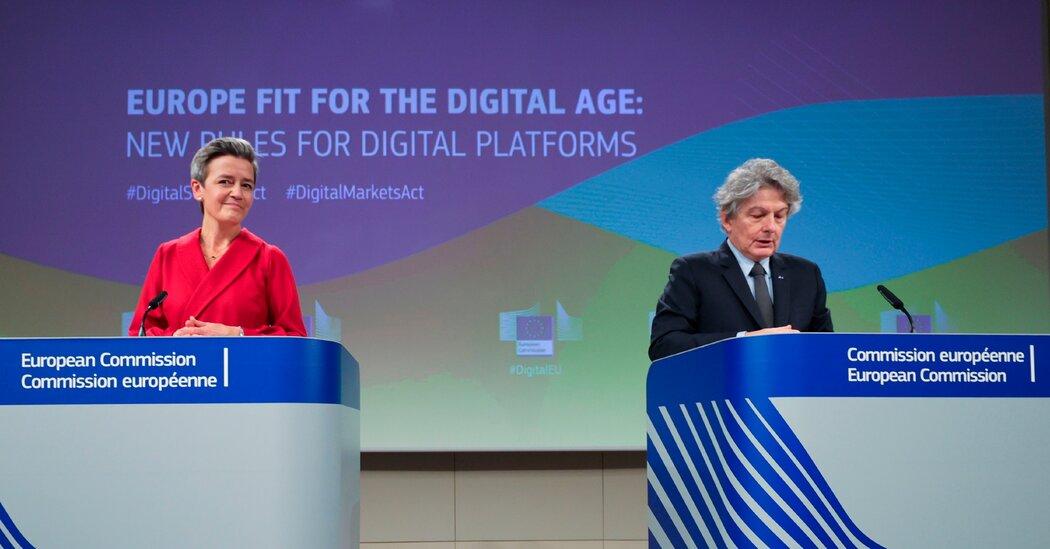The two have long been divided on whether speech can be restricted, and when. Under the Trump administration, the gap is widening.
President Trump and Europe are clashing over tariffs, the war in Ukraine and the very purpose of the European Union’s existence. But they are also divided over free speech — with potentially far-reaching implications for how the digital world is regulated.
The E.U. has been investigating U.S. companies under the Digital Services Act, a new law meant to prevent illegal content and disinformation from spreading online. In the first major case to near a conclusion, regulators as soon as this summer are expected to impose significant penalties — including a fine and demands for product changes — on Elon Musk’s social media platform, X, saying the law was violated.
But Mr. Trump’s administration sees the law as a strike against his version of free speech: One that unshackles his allies to say what they want online, but restricts types of expression he does not agree with in the real world, like protests at universities.
The president has argued that Europe is at risk of “losing their wonderful right to freedom of speech.” Vice President JD Vance has accused European nations of “digital censorship” because of its laws, which he argues restricts far-right voices on the internet.
And both administration officials and their allies at big technology companies have suggested that Europe’s rules for curbing disinformation and incendiary speech on the internet are an attack on American companies — one that the United States could fight back against.
Since Mr. Trump’s inauguration, Europe and the United States have clashed repeatedly. On Ukraine, Mr. Trump has dialed back support and threatened not to defend European nations that do not invest enough in their own security. On trade, Mr. Trump this week announced wide-ranging tariffs on Europe. And as European regulators begin to enforce their new social media rules, free speech is becoming another flashpoint.
